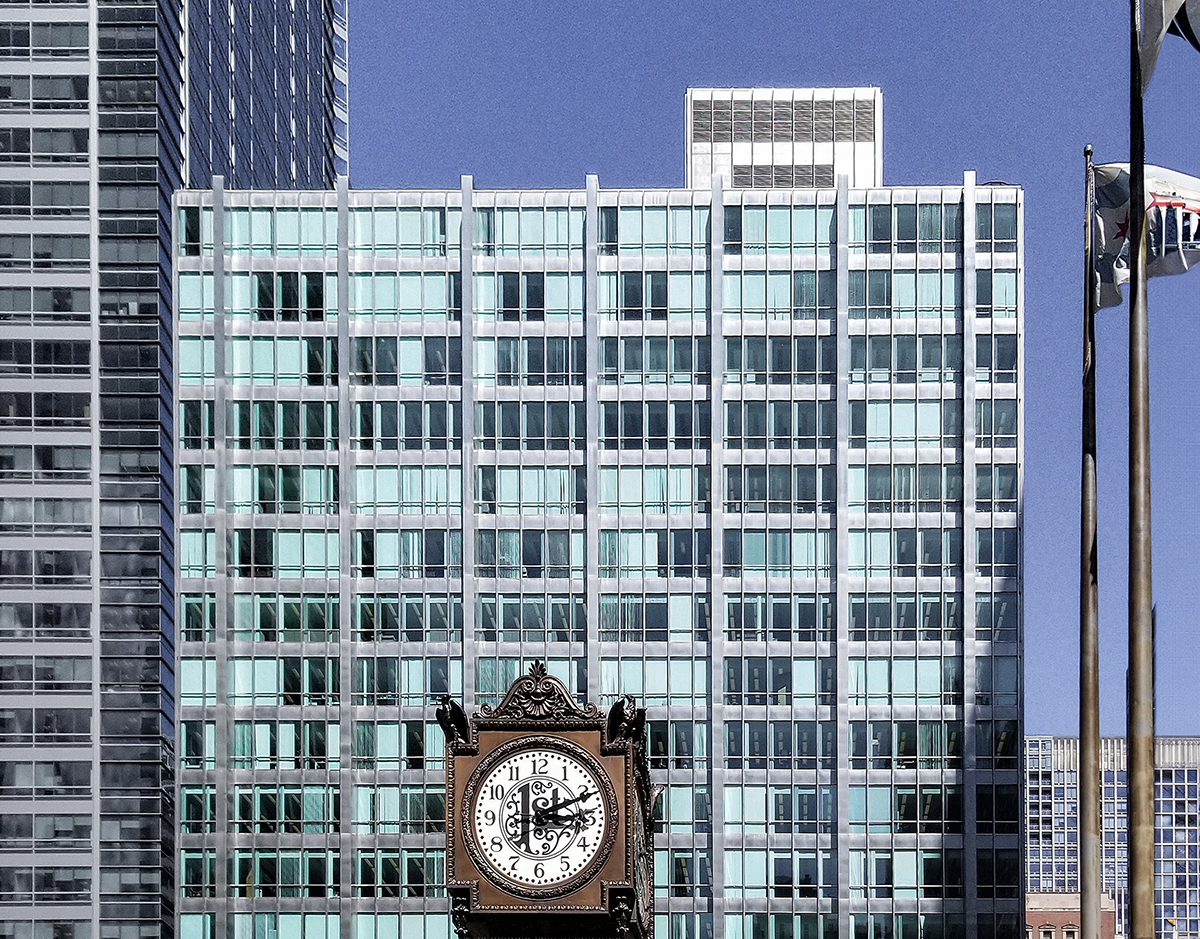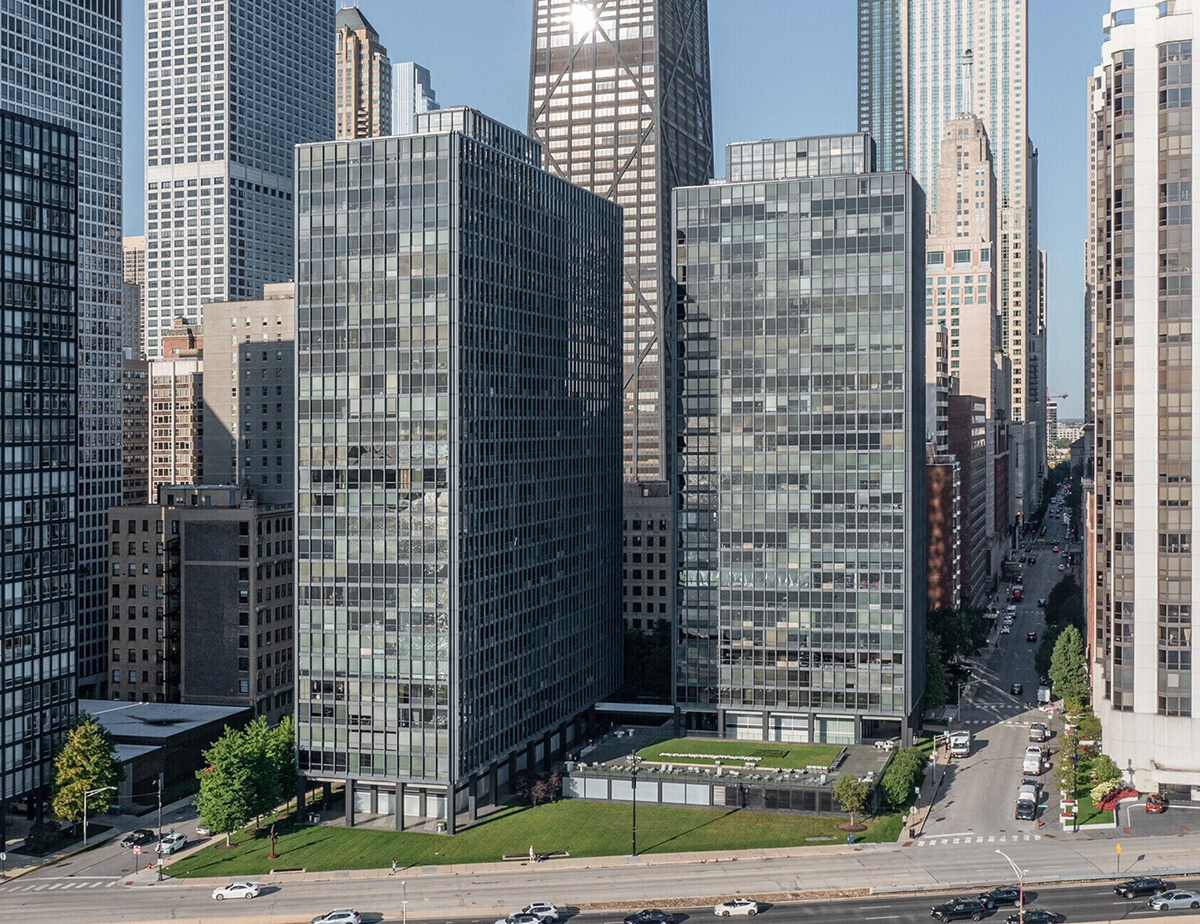Inland Steel Building vs 900-910 North Lake Shore


Comparing the Inland Steel Building and the 900-910 North Lake Shore is interesting because they both stand in Chicago, IL, and were completed within 2 years of each other, but they were designed by different architects.
This offers a unique glimpse at how rival designers approached projects in the same city during the same era.
Height & Size
These two towers present an interesting contrast in their proportions. The Inland Steel Building rises higher at 331ft (101m), while the 900-910 North Lake Shore reaches 259ft (79m). However, the 900-910 North Lake Shore accommodates more floors with 29 levels above ground, compared to 19 floors in the Inland Steel Building.
This suggests different approaches to interior space design. The Inland Steel Building has an average floor-to-floor height of approximately 5.3m, while the 900-910 North Lake Shore has more compact floors averaging around 2.7m each. The taller building's more generous floor heights might indicate grander interior spaces, higher ceilings, or different programmatic requirements.
These different proportions likely reflect the specific needs each building was designed to serve, whether driven by zoning regulations, client requirements, or the intended use of the spaces within. The contrast shows how architects can achieve different spatial experiences even when working with similar overall building scales.
Architectural Style
Both the Inland Steel Building and the 900-910 North Lake Shore were designed in line with the aesthetic conventions of the International Style style.
At the time, this style was at the height of its popularity. So both Skidmore, Owings & Merrill and Mies van der Rohe followed what was in many ways expected of them, producing designs that fit comfortably within contemporary architectural norms, rather than breaking with convention.
Uses
The Inland Steel Building is primarily commercial, while the 900-910 North Lake Shore is primarily residential.
The 900-910 North Lake Shore offers 524 residential units.
Structure & Facade
Both the Inland Steel Building and the 900-910 North Lake Shore rely on a Frame structural system.
A frame structure uses a grid of columns and beams to carry the building's loads. This frees the walls from structural duties, allowing for flexible floor plans and larger windows.
They also employ the same type of facade, a Curtain Wall facade.
A curtain wall is a non-load-bearing facade hung from the structural frame. It is anchored to floor slabs and transfers only its own weight and wind loads, allowing for sleek, glassy exteriors.
| Inland Steel Building | 900-910 North Lake Shore | |
|---|---|---|
| Skidmore, Owings & Merrill | Architect | Mies van der Rohe |
| 1958 | Year Completed | 1956 |
| International Style | Architectural Style | International Style |
| Commercial | Current Use | Residential |
| 19 | Floors Above Ground | 29 |
| 101 m | Height (m) | 79 m |
| Frame | Structure Type | Frame |
| Steel | Vertical Structure Material | Steel |
| Yes | Facade Structural? | No |
| Glass, Stainless Steel | Main Facade Material | Glass |
| Inland Steel Company | Developer | Herbert Greenwald |
| IL | State | IL |
| Chicago | City | Chicago |
| 30 W. Monroe Street | Address | 900 910 North Lake Shore Drive |